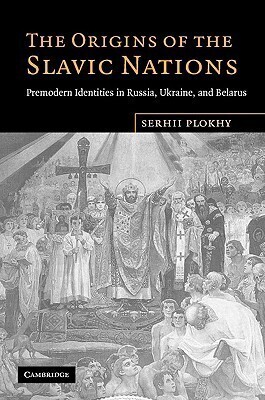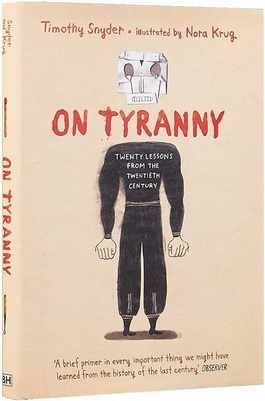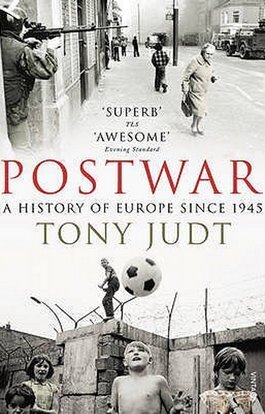For Life: Three Books for World Book Day
Serhii Plokhy, Timothy Snyder, and Tony Judt – for understanding this war
On April 23, World Book and Copyright Day is celebrated. How it is celebrated and why it is important to continue reading, as well as what lessons Ukraine can learn from past wars, were discussed by Mind through three books that she recommends for reading. Olena Orliuk, Head of the Ukrainian National Office of Intellectual Property and Innovation, Doctor of Law, Professor at the Intellectual Property and Information Law Department of the Taras Shevchenko National University of Kyiv, shared her insights.
When this holiday was initiated in the 1920s in Spain in conjunction with the name Miguel de Cervantes, a massive book fair was held in Barcelona, which booksellers organised in honour of Catalonia's patron saint, St. George. Historically, this day has been marked by grand fairs and other celebratory events around the world. We, as a nation always fond of books, a nation that reads, should not be an exception. But we have become one.
Unfortunately, our well-known book forums in Kyiv, Lviv, Dnipro, Kharkiv, and Odesa, which attracted thousands of enthusiasts from all over the country and abroad, are incomparable to a full-scale war. Therefore, this year our celebration will be quiet. However, despite the extremely difficult circumstances, the war has not been able to take away our love for reading and books.
We may love various kinds of literature or genres – fiction, business, non-fiction, historical, fantasy, popular science or novels, legends, epics, poetry... In times of war, many have changed altogether their perception of books, and tastes have shifted to previously favoured genres as a defensive reaction.
There are more books to read than there is time for a person. You cannot list them all. Therefore, today I will address a specific topic: history, and I advise you to do the same.
For until you look into the past, you will never understand what is happening around you.
Serhii Plokhy "The Origins of Slavic Nations: Premodern Identities in Russia, Ukraine and Belarus"

*It's difficult to write the title correctly, because I haven't been using capital letters for foreign words over the last year.
Serhii Plokhy is a fundamental figure: a historian with a global reputation, a professor at Harvard University, a laureate of the Taras Shevchenko Prize... a person about whom books will also be written later. Plokhy is a modern classic of historical science, and any of his works could be here, but I chose this one.
Because it raises a very important question right now: what is a nation?
We are used to talking about the nation as something unquestionably present. Something that emerges on its own and exists on its own. Although in reality, all nations are quite young phenomena. Let's say, in the Middle Ages, they simply did not exist.
This book teaches us to look at the nation not as something given by nature, but as something acquired at great cost.
A nation is the result of intellectual work and military valour, it is preserved memory and conscious responses to ambiguous questions. It is a home created with sweat and blood, which requires attention and care. In a sense, the nation is also intellectual property, but it belongs not to a person or a company, but to an centire people.
Timothy Snyder "On Tyranny: Twenty Lessons from the Twentieth Century"

This book is a guide for the modern individual. It was written by a very well-known American professor, who is an expert on totalitarianism.
We all live in an age of progress. We are at the highest point of technological and social development – higher than at any other time in human history. The Germans in 1933 thought the same. Our advantage is that we already have their experience. But that is no reason to relax.
Any mass society can give birth to a monster – tyranny. And the scariest thing is that it won't be noticeable right away. Tyranny usually doesn't break down doors: it creeps in, calms, and lulls.
This has happened more than once (Snyder provides enough examples) and can always happen again. Anywhere. He reminds us that we cannot give in, we cannot let the pull towards authoritarianism and violence go unchecked, and we cannot sit idly by as societal institutions vanish before our eyes.
"The price of freedom is eternal vigilance" – this can summarise all twenty lessons of the twentieth century. Vigilance towards the state, vigilance towards the environment, and vigilance towards oneself because tyranny feeds not only on collective weakness but also on the weakness of each individual.
Tony Judt "Postwar: A History of Europe Since 1945"

Another world-renowned historian – this time from Britain.
The book is about Europe as it is – "not even a continent, but merely a subcontinental appendix to Asia" – containing far too much. People, their views, heavy memories, and blood-stained places.
From Vienna to Yugoslavia, from London to Madrid – Judt meticulously examines every corner. It is unlikely that one can tell the story of Europe without missing anything, but he creates a certain picture, detailed and multifaceted.
He wrote this book because he felt the need for a "new history". It was 1989 when socialist regimes were collapsing, and Eastern Europe was once again drawn to the West, so history from the left or the right alone could no longer work. Something was needed that would take into account the experience of everyone; as well as recently declassified documents, and the simple corrections of time that always force us to look at the past differently.
Buy and read books by Ukrainian authors and publishers.
Reading now is, first and foremost, about support. For those who create and those who publish. It's about the future of our country, our cultural code.
Buy books, no matter how difficult it may be in terms of funds. Because it's about the survival of our publishers, a small percentage of which remain working or are trying to resume their work in the reclaimed territories. The cost of books is not about publishers, but about paper, which is not produced in the country for printing books. Therefore, we are interested in intellectual achievements – such as the one achieved by Valentyn Frechka in 2018 in New York, where he won a gold medal for technology producing paper from fallen leaves – a technology that was already being introduced in early 2022 in Zhytomyr.
As the last year has shown, loving books is also about charity. Otherwise, last year's project Book Forces of Ukraine would not have been introduced, an online store for used books, where both buyers and sellers act as benefactors. A project that helps convert your books into donations for the Armed Forces of Ukraine, raising half a million hryvnias so far.
Books are about life. Read. Happy holiday!